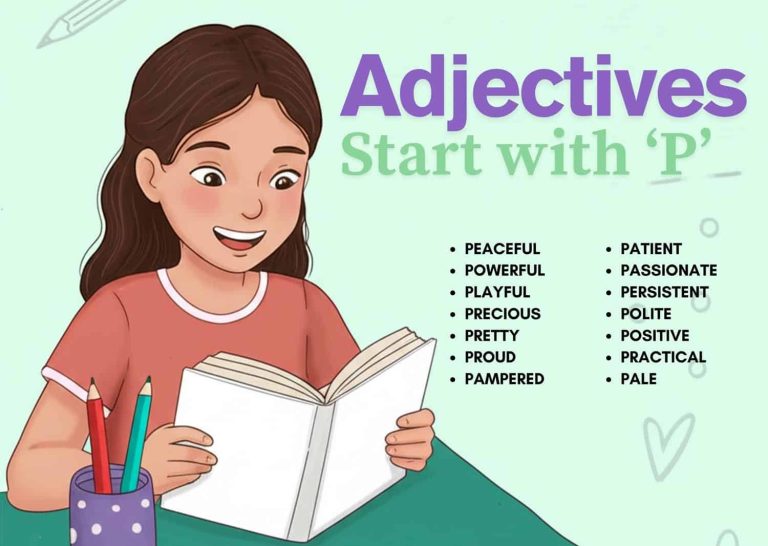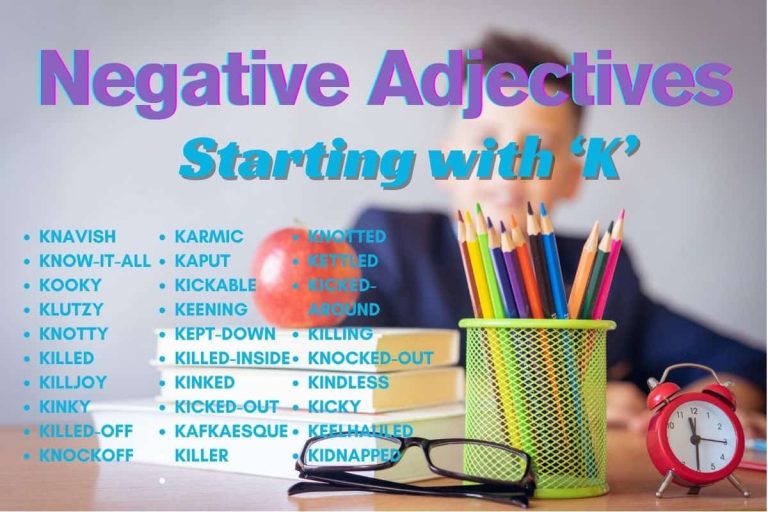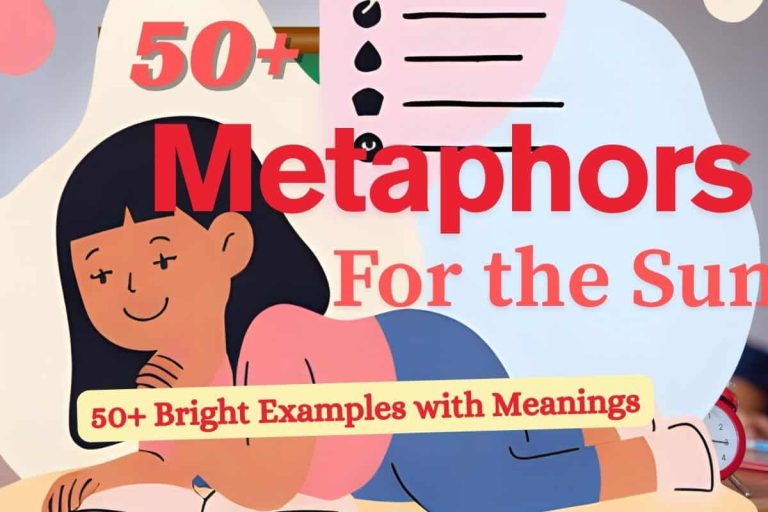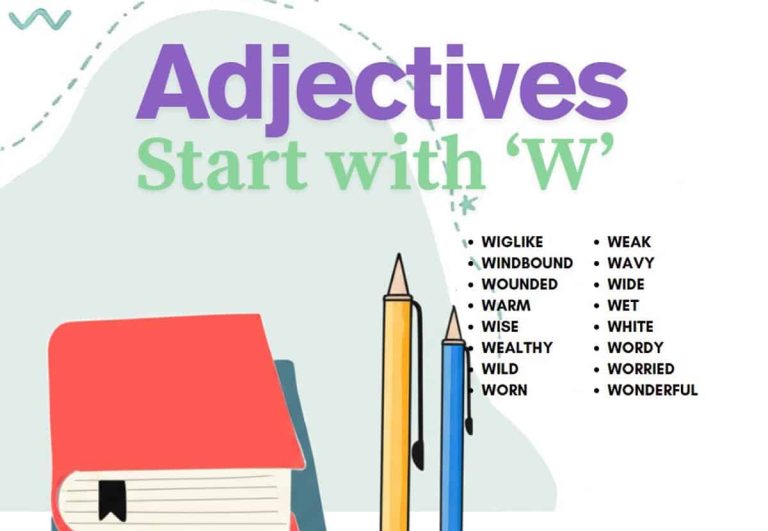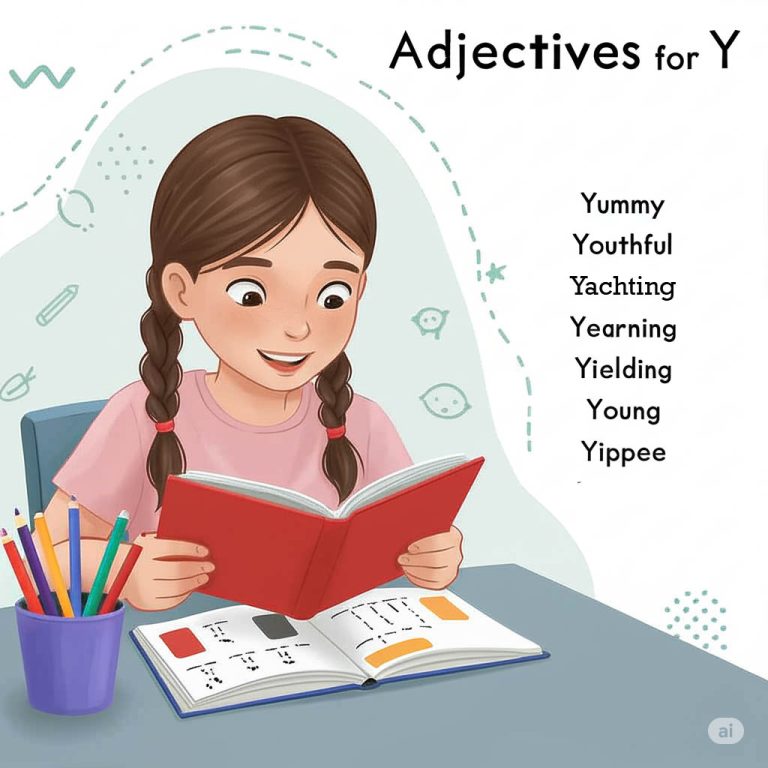Adjectives That Start With ‘J’: 100+ J Adjectives
Adjectives are the colorful building blocks of language, adding depth and detail to our descriptions. When it comes to adjectives that start with the letter ‘J,’ the options might seem limited at first glance.
However, exploring these ‘J’ adjectives reveals a fascinating array of words that can enrich your vocabulary and enhance your ability to express yourself with precision and flair. Understanding these adjectives is especially useful for writers, students, and anyone looking to improve their command of the English language.
This guide provides a comprehensive overview of adjectives starting with ‘J,’ complete with definitions, examples, usage rules, and practice exercises to help you master their use.
Whether you’re crafting compelling narratives, writing detailed reports, or simply aiming to communicate more effectively, this article will equip you with the knowledge and skills needed to confidently use adjectives starting with ‘J.’ From the common to the more obscure, we’ll delve into the nuances of each word, providing clear examples and practical tips to help you integrate them seamlessly into your writing and speech.
Definition of Adjectives
An adjective is a word that modifies a noun or pronoun. It provides descriptive information about the noun or pronoun, such as its qualities, characteristics, or attributes.
Adjectives answer questions like “What kind?”, “Which one?”, “How many?”, or “How much?” They are essential for creating vivid and detailed descriptions in both written and spoken language. Understanding the role and function of adjectives is crucial for effective communication.
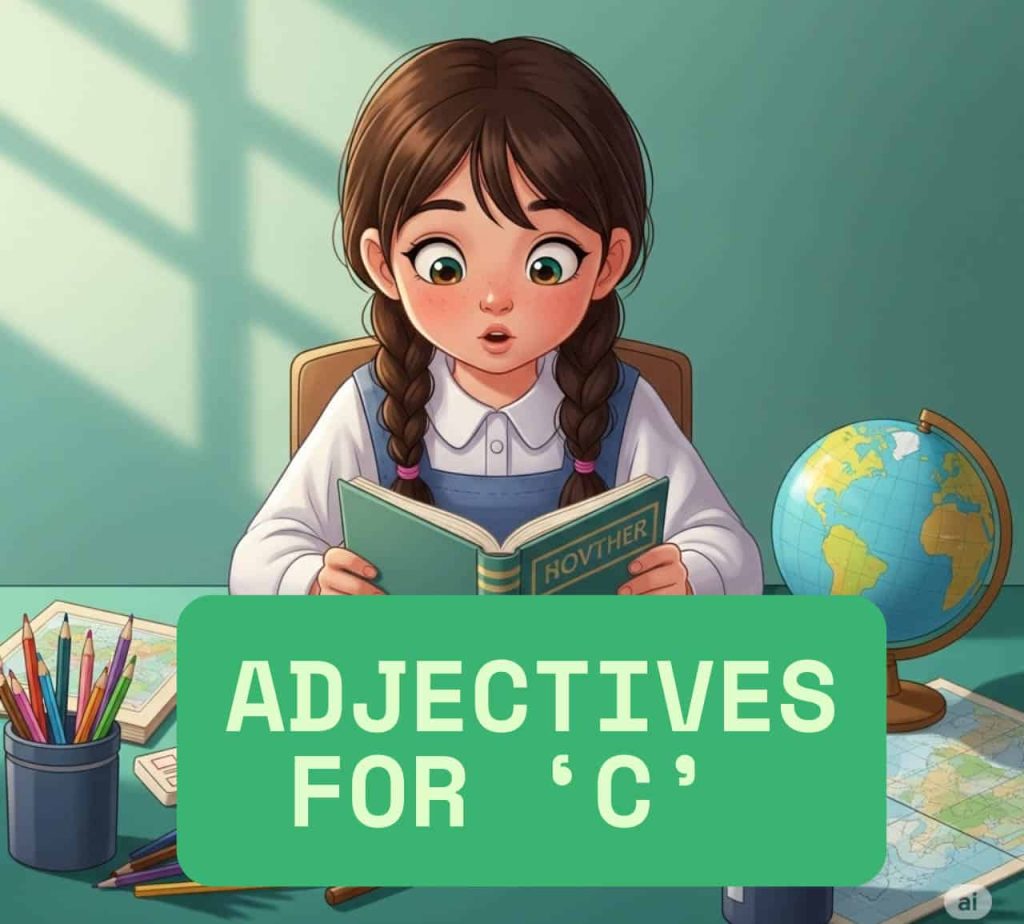
Function of Adjectives
Adjectives serve several important functions in a sentence. Primarily, they add detail and specificity to nouns and pronouns, making the meaning more precise. They can describe physical attributes (e.g., tall, blue), qualities (e.g., kind, honest), or states of being (e.g., happy, tired).
Adjectives also help to distinguish one noun from another, allowing for clearer communication. Without adjectives, our language would be bland and lack nuance.
Structural Breakdown of Adjectives
Adjectives can be classified based on their structure. Simple adjectives consist of a single word (e.g., big, small). Compound adjectives are formed by combining two or more words, often with a hyphen (e.g., well-known, state-of-the-art). Participle adjectives are derived from verbs and can function as adjectives (e.g., broken, interesting). Understanding the structure of adjectives can help you identify and use them correctly in various contexts.
Types of Adjectives
Adjectives can be categorized into several types based on their function and meaning:
- Descriptive Adjectives: These describe the qualities or characteristics of a noun (e.g., beautiful, intelligent).
- Quantitative Adjectives: These indicate the quantity or amount of a noun (e.g., few, many, some).
- Demonstrative Adjectives: These point out specific nouns (e.g., this, that, these, those).
- Possessive Adjectives: These show ownership (e.g.,my, your, his, her, its, our, their).
- Interrogative Adjectives: These are used in questions (e.g., which, what, whose).
- Proper Adjectives: These are formed from proper nouns (e.g., American, Shakespearean).
100+ Adjectives Starting with ‘J’
Here’s a list of adjectives that start with the letter ‘J,’ along with their definitions:
- Jagged: Having sharp, pointed projections or notches.
- Jampacked: Filled to capacity; crowded.
- Jaundiced: Affected by bitterness, resentment, or cynicism; also, having a yellowish discoloration of the skin.
- Jaunty: Having or expressing a lively, cheerful, and self-confident manner.
- Jealous: Feeling or showing envy of someone or their achievements and advantages.
- Jestful: Merry; playful; characterized by joking.
- Jiggling: Moving or shaking quickly and repeatedly up and down or from side to side.
- Jocose: Playful or humorous.
- Jocular: Fond of or characterized by joking; humorous or playful.
- Jocund: Cheerful and lighthearted.
- Joint: Shared, held, or made by two or more people together.
- Jolting: Characterized by sudden and violent jerks or shocks.
- Joyful: Feeling, expressing, or causing great pleasure and happiness.
- Joyous: Full of happiness and joy.
- Judgmental: Having or displaying a tendency to make critical judgments, especially based on personal standards.
- Judicious: Having, showing, or done with good judgment or sense.
- Juicy: Full of juice; succulent; also, interesting and revealing.
- Jumbled: Mixed up in a confused or disordered state.
- Junior: Relating to younger or less experienced people; lower in rank or position.
- Jurisdictional: Relating to the extent of authority or control.
- Just: Based on or behaving according to what is morally right and fair.
- Juvenile: Relating to young people; immature or childish.
Examples of Adjectives Starting with ‘J’
Here are some examples of how these adjectives can be used in sentences:
- The mountain range had a jagged peak that was difficult to climb.
- The subway car was jampacked during rush hour.
- His jaundiced view of politics made him skeptical of every proposal.
- She wore a jaunty hat that added to her cheerful appearance.
- He felt jealous of his friend’s success.
- The jestful clown entertained the children with his antics.
- The jiggling pudding was a hit with the kids.
- His jocose manner made everyone laugh.
- The jocular host kept the party lively.
- The jocund atmosphere of the festival was infectious.
- They made a joint decision to invest in the company.
- The jolting ride on the old bus left her feeling shaken.
- The joyful news of her promotion made her day.
- It was a joyous occasion filled with laughter and celebration.
- Her judgmental attitude often made others uncomfortable.
- He made a judicious decision to save his money.
- The juicy peach was ripe and delicious.
- The jumbled mess of wires was difficult to untangle.
- He was a junior member of the team.
- The jurisdictional dispute was settled in court.
- The just ruler was loved by his people.
- His juvenile behavior was inappropriate for his age.
Additional Adjectives for C
Here are an additional 100 adjectives that start with the letter J, covering a range of tones and uses:
-
Jabbering
-
Jacked
-
Jackrabbit-like
-
Jade-green
-
Jaggy
-
Jailed
-
Jailbroken
-
Jailhouse
-
Jailish
-
Jammy
-
Jangly
-
Jarring
-
Jasmine-scented
-
Jaundiced-looking (not identical to “Jaundiced”)
-
Jaw-dropping
-
Jawed
-
Jawlike
-
Jeering
-
Jejune
-
Jelly-like
-
Jellied
-
Jeweled
-
Jihadist
-
Jiggly
-
Jilted
-
Jingly
-
Jinxed
-
Jobless
-
Joculatory
-
Jogging
-
Jolted
-
Jonquil-colored
-
Jouncing
-
Journalistic
-
Journeyed
-
Jovial
-
Joy-spreading
-
Joy-inducing
-
Joyless
-
Jubilant
-
Jubilated
-
Judgelike
-
Judicial
-
Judicialistic
-
Judicialized
-
Juice-stained
-
Juiceless
-
Juicier
-
Juicily
-
Juicy-red
-
Jumbled-up
-
Jumbo
-
Jumping
-
Jumpstart
-
Jumpy
-
Jungly
-
Junior-level
-
Junoesque
-
Junky
-
Junkyard-bound
-
Justifiable
-
Justified
-
Justly
-
Just-right
-
Juxtaposed
-
Jazzed
-
Jazzy
-
Jazzy-colored
-
Jeep-like
-
Jellified
-
Jam-packed (alternate spelling to Jampacked)
-
Jet
-
Jet-black
-
Jet-powered
-
Jet-setting
-
Jetting
-
Jewel-toned
-
Jester-like
-
Jestingly
-
Jigglingly
-
Jiggy
-
Jigsaw-like
-
Jingoistic
-
Jitter-inducing
-
Jittery
-
Job-oriented
-
Job-related
-
Jointed
-
Jointless
-
Joke-worthy
-
Joking
-
Journal-bound
-
Joy-bringing
-
Joyous-looking
-
Joy-packed
-
Juvenescent
-
Jutting
-
Juvenile-minded (not exactly same as Juvenile)
-
Juvenescence-inducing
-
Jungle-like
Usage Rules for Adjectives
To use adjectives effectively, keep the following rules in mind:
- Placement: Adjectives usually come before the noun they modify (e.g., a beautiful flower). However, they can also follow a linking verb (e.g., The flower is beautiful).
- Order: When using multiple adjectives, there is a general order to follow: opinion, size, age, shape, color, origin, material, and purpose (e.g., a beautiful large old round blue French cotton tablecloth).
- Comparatives and Superlatives: Use comparative forms (ending in -er or using more) to compare two things (e.g., taller, more interesting). Use superlative forms (ending in -est or using most) to compare three or more things (e.g., tallest, most interesting).
- Articles: Use the appropriate article (a, an, or the) before adjectives based on the noun they modify (e.g., a juicy apple, an interesting book, the judgmental critic).
Common Mistakes with Adjectives
Here are some common mistakes to avoid when using adjectives:
- Misplaced Adjectives: Ensure the adjective is close to the noun it modifies to avoid confusion (e.g., Incorrect: He saw a dog running down the street that was large. Correct: He saw a large dog running down the street.).
- Incorrect Comparative/Superlative Forms: Use the correct form when comparing (e.g., Incorrect: more taller. Correct: taller).
- Double Negatives: Avoid using double negatives with adjectives (e.g., Incorrect: He wasn’t unjust. Correct: He was just.).
- Incorrect Article Usage: Use the correct article based on the noun and adjective (e.g., Incorrect: a interesting book. Correct: an interesting book).
Practice Exercises
Exercise 1: Fill in the Blanks
Fill in the blanks with an appropriate adjective starting with ‘J’:
- The __________ peaks of the mountains were covered in snow.
- The __________ crowd made it difficult to move through the concert venue.
- His __________ comments revealed his bitterness about the situation.
- She wore a __________ scarf that added a touch of elegance to her outfit.
- He felt __________ when his colleague received the award he had hoped for.
Answers:
- Jagged
- Jampacked
- Jaundiced
- Jaunty
- Jealous
Exercise 2: Correct the Sentence
Identify and correct the mistake in the following sentences:
- He made a more judiciouser decision than his brother.
- The apple was very juicy and delicious in taste.
- She wasn’t unjust to her employees.
Corrected Sentences:
- He made a more judicious decision than his brother.
- The apple was juicy.
- She was just to her employees.
Advanced Topics
For those looking to delve deeper into the use of adjectives, consider exploring these advanced topics:
- Adjective Clauses: Learn how to use clauses that function as adjectives to add more detail to your sentences.
- Absolute Adjectives: Understand the use of adjectives that have no comparative or superlative form (e.g., unique, perfect).
- Predicate Adjectives: Study how adjectives function when they follow a linking verb and describe the subject of the sentence.
- The Psychology of Adjectives: Explore how different adjectives evoke different emotions and perceptions in readers and listeners.
Frequently Asked Questions (FAQ)
What is the difference between an adjective and an adverb?
Adjectives modify nouns and pronouns, while adverbs modify verbs, adjectives, or other adverbs. Adjectives describe things, while adverbs describe actions or qualities.
Can a noun be used as an adjective?
Yes, a noun can function as an adjective when it modifies another noun (e.g., a school bus, where “school” modifies “bus”).
How do I choose the right adjective for my sentence?
Consider the specific quality or characteristic you want to emphasize and choose an adjective that accurately and effectively conveys that meaning. Use a thesaurus to explore different options and nuances.
Conclusion
Mastering the use of adjectives, including those starting with the letter ‘J,’ can significantly enhance your communication skills. You can craft more vivid, precise, and engaging sentences by understanding their definitions, usage rules, and common pitfalls.
Whether you’re writing creatively, academically, or professionally, a strong command of adjectives will enable you to express yourself with greater clarity and impact. Continue to practice and explore new adjectives to expand your vocabulary and refine your writing style.

